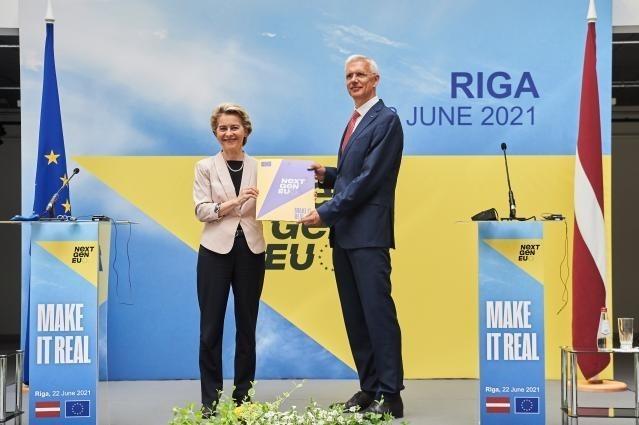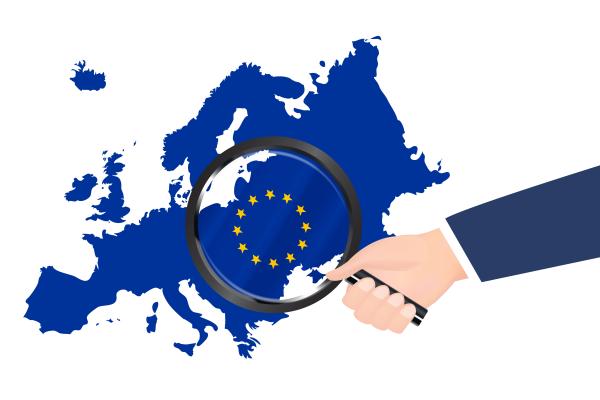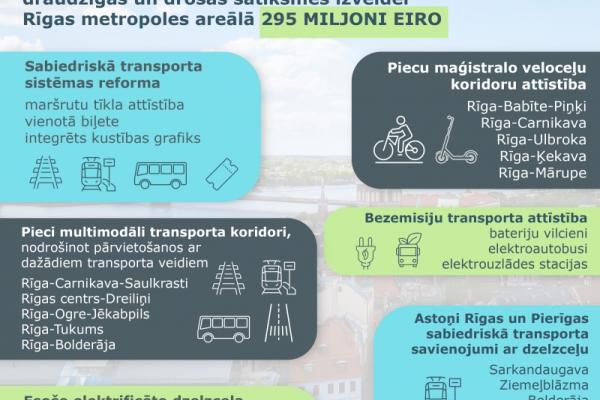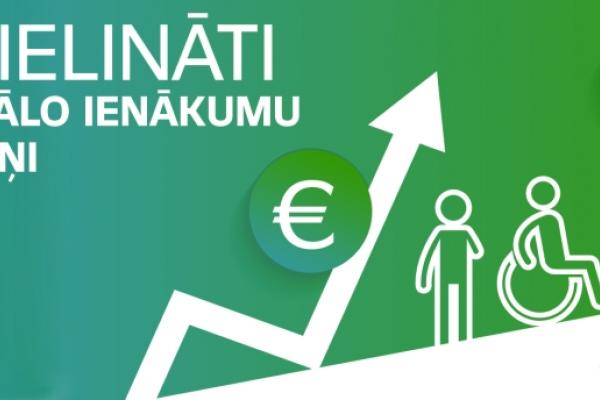
Following the unprecedented crisis caused by the COVID-19 pandemic, Latvia’s recovery and resilience plan has responded to the urgent need to foster a strong recovery, while making Latvia’s economy and society more resilient and future ready. In response to the energy market disruption caused by Russia's invasion of Ukraine, the Commission launched the REPowerEU Plan. The Recovery and Resilience Facility is at the heart of its implementation and its funding. Under REPowerEU, EU countries are updating their recovery and resilience plans with new measures to save energy and diversify the EU’s energy supplies.
Green transition
Focusing on green technologies and capacities - sustainable mobility, energy efficiency and renewables, climate change adaptation; circular economy; and biodiversity.
Policies for the next generation
Improving access to and the quality of general, vocational, and higher education; focusing on digital education, early childhood education and care; supporting youth employment.
Smart, sustainable, inclusive growth
promoting entrepreneurship, competitiveness, industrialisation; improving the business environment; fostering research, development and innovation, supporting small- and medium-sized businesses.
Digital transformation
Promoting the roll-out of very high-capacity networks, the digitalisation of public services, government processes, and businesses, in particular SMEs; developing basic and advanced digital skills; supporting digital-related R&D and the deployment of advanced technologies.
Social and territorial cohesion
Improving social and territorial infrastructure and services, including social protection and welfare systems, the inclusion of disadvantaged groups; supporting employment and skills development; creating high-quality, stable jobs.
Health and economic, social and institutional resilience
Improving the resilience, accessibility and quality of health and long-term care, including measures to advance their digitalisation; increasing the effectiveness of public administration systems.
The map exclusively serves information purposes and is not an exhaustive database of projects supported by the Recovery and Resilience Facility. It does not reflect the distribution of the projects funded by the Recovery and Resilience Facility across the European Union, nor across different geographical areas or sectors within EU Member States. The RRF funding amounts shown for measures are based on the initial cost estimates included in the recovery and resilience plans.
Furthermore, the projects showcased are without prejudice to any future assessment by the Commission in the context of verifying the satisfactory fulfilment of milestones and targets under Regulation (EU) 2021/241 establishing the Recovery and Resilience Facility.
Country snapshot

The country snapshot illustrates some of the most iconic and impactful projects included in the Latvian Recovery and Resilience Plan that will bring positive change for EU citizens, businesses and the EU at large.
The reforms and investments in Latvia’s plan are helping it to become more sustainable, resilient and better prepared for the challenges and opportunities of the green and digital transition. Following Council approval of Latvia’s plan on 13 July 2021, Latvia’s recovery and resilience plan was updated on 8 December 2023 also to introduce a REPowerEU chapter.
- 63 investment streams and 25 reforms
- 42% of the plan will support climate objectives
- 23% of the plan will foster the digital transition
The transformative impact of Latvia’s revised plan is the result of a strong combination of reforms and investments which address the country’s specific challenges. The reforms address bottlenecks to lasting and sustainable growth, while investment is targeted at the green and digital transitions, social inclusion, including healthcare, the social safety net and regional disparities. The revised plan includes key reforms focusing on health, social assistance, higher education and skills. They are expected to have a positive long-term impact on the country’s wellbeing. In particular, the plan includes ambitious reforms covering the governance and financing of higher education institutions, a new remuneration model in healthcare and the introduction of indexation of minimum income benefits. The investments included in the modified Latvia’s plan put a strong focus on boosting economic and social resilience, green and digital transition, including important investments such as the greening of the Riga transport area, the energy efficiency renovation programme, regional development measures (schools, industrial parks, roads, affordable housing) and the modernisation of hospitals.
All measures included in the modified plan have to be implemented within a tight time frame, as the Regulation establishing the Recovery and Resilience Facility requires all milestones and targets within the national plans to be completed by August 2026.
REPowerEU measures in Latvia’s plan
Latvia’s plan now includes a REPowerEU chapter containing measures to help address the key energy challenges that Latvia is currently facing.
The REPowerEU grant allocation amounts to €124 million. Moreover, Latvia has requested to transfer € 10.9 million from the Brexit Adjustment Reserve (BAR) to finance investments and reforms of the chapter, for a total of €135 million.
Key measures for REPowerEU
The REPowerEU measures include a reform that aims at bringing important transformation in the national energy sector by promoting energy communities and renewable energy self-consumption and self-generation. It will also contribute to optimising the use of existing distribution and transmission networks, and to improving the conditions for the uptake of sustainable biomethane.
The new investments are aimed at increasing the capacity of the electricity grid, accommodating the integration of Renewable Energy Sources (RES), and accelerating the synchronisation of the national electricity network with the Continental Europe network. The investments are also aimed at digitalising, modernising and securing electricity transmission and distribution networks, as well as at increasing the uptake of sustainable biomethane.
To increase the security and stability of electricity supply, under the REPowerEU chapter of Latvia’s revised plan a 60-megawatt Battery Energy Storage System will be installed. The investment measure will complement a cross-border project currently under implementation by Latvia, Lithuania, Estonia and Poland aimed at ensuring the synchronisation of the Baltic States’ electricity networks with the Continental Europe network.
Green transition
In the area of climate and environmental policies, Latvia’s challenges include the need to improve energy efficiency and accelerate the renovation of the building stock, to deploy sustainable and clean mobility and transport solutions, and a relatively slow roll-out of renewable energy sources to generate electricity.
Effectively, the investments and reforms in the revised plan continue to focus on clean transport, energy efficiency of private and public buildings, electricity network modernisation and flood risk reduction measures. The plan also preserves the legislative action to facilitate the deployment of onshore wind energy at national level.
Key measures for the green transition
- The plan supports the green transition with investments to overhaul the Riga Metropolitan area transport system and to incentivise clean transport and sustainable mobility (€295 million).
- An investment stimulus of €472 million in the energy efficiency of private and public buildings, and of businesses, thanks to a large-scale renovation initiative and to financial schemes.
- Latvia’s recovery and resilience plan includes a reform which will improve the regulatory framework to facilitate the deployment of onshore wind energy and reduce legal uncertainty for investments in wind power.
- Investment to prepare the national energy grid for a higher integration of renewable energy sources and by increasing the uptake of sustainable biomethane.
As a result of the addition of the REPowerEU chapter, the modified plan has further strengthened the original focus on the green transition, now devoting 42% of the available funds to measures that support climate objectives (up from 37.6% in the original plan). This means a stimulus worth €827 million under the Recovery and Resilience Facility by 2026 for investments and reforms accelerating the green transition and fostering climate change adaptation.

The general objective of the measure is to contribute to reduce Latvia’s greenhouse gas (GHG) emissions with a focus on transport which represents the biggest source of GHG emissions.
- Project locations
- Latvia
Digital transition
Digital challenges for Latvia include improving basic digital skills, increasing the uptake of digital solutions by businesses as well as alleviating the shortage of information and communication technology specialists, which currently impacts workforce availability, competitiveness, resilience, use of government e-services and innovation alike.
Key measures for the digital transition
- Latvia’s recovery and resilience plan supports the digital transition with investments in the digitalisation of public administration and public services (€129 million).
- Measures to improve the digitalisation of small and medium sized enterprises (€125 million) support the digital transformation of businesses and create a better environment for research and innovation.
- Investments to deploy high-speed broadband shall help further improve digital infrastructure (€16.5 million).
- Reforms for digital upskilling aim at improving the basic and advanced digital skills of citizens, enterprises and public administration (€95 million).
- Investments in the digitalisation of the country's public administration and public services.
- Digital transition for businesses, including small and medium-sized enterprises, support for the development of high-tech digital products and services, and the introduction of Industry 4.0 solutions in production processes.
- Investments to deploy high-speed broadband, complemented by reforms for the digital upskilling of the country's workforce.
The modified plan has further strengthened the focus on the plan on the digital transition, devoting 23% of the available funds to measures that support digital objectives (up from 21% in the original plan).

The investment consists of the establishment of the Latvian Federal Cloud, which provides for consolidation of public sector data storage and computing capabilities.
- Project locations
- Latvia
Economic and social resilience
Key challenges with an impact on Latvia’s medium-term economic performance include the resilience, accessibility, quality and cost-effectiveness of the healthcare sector, the quality and efficiency of the education system and digital skills. Latvia also faces challenges in the social field, in particular as regards the level of benefits and various social support, as well as access to affordable housing. In light of Latvia’s innovation performance gap with the rest of the EU, further efforts are needed to advance in the area of research and innovation, as well as to improve the efficiency of public administration.
Key measures in reinforcing economic and social resilience
- The plan reinforces economic and social resilience with investments in affordable housing, which should also help foster labour mobility as Latvians are often hampered by a lack of housing opportunities in the places with the best employment opportunities (€43 million).
- Other investments will modernise healthcare, by investing in hospitals and healthcare service providers to strengthen the resilience of the health sector and to increase the availability of integrated and high-quality healthcare services (€158 million).
- A higher education reform will aim at improving the governance, the accreditation mechanism and the funding principles for the higher education sector. The reform will be complemented by investments in research and academic development (€82.5 million).

The general objective of the reform is to reduce inequality, improve the social safety net, foster social integration and inclusion in Latvia.
- Project locations
- Latvia
ANNUAL EVENT
- The 2022 Annual Event on Latvia’s recovery and resilience plan took place on 31 May 2022.
- Participants included the European Commission, Government of Latvia, and a broad range of stakeholders, including social partners, NGOs, and academics.
- The discussions focussed on the implementation of Latvia’s recovery and resilience plan in the areas of the green and digital transitions and social resilience and the challenges identified in the European Semester process.
EUROPEAN SEMESTER
Latvia’s plan is consistent with the challenges and priorities identified in the European Semester, the annual cycle of coordination and monitoring of each EU country’s economic policies. For a detailed explanation of the European Semester see the following link: The European Semester explained | European Commission (europa.eu)
National recovery and resilience website
Original Recovery and Resilience Plan (July 2021)
National recovery and resilience plan
Updated Recovery and Resilience Plan (December 2023)
Original Recovery and Resilience Plan (July 2021)
Documents
Commission Staff Working Document: Analysis of the recovery and resilience plan of Latvia
Press Material
Press release: "European Commission endorses Latvia's plan”
Factsheet: Latvia’s recovery and resilience plan
Questions and answers: European Commission endorses Latvia's plan
Further Information
Presentation to the Council of Latvia’s recovery and resilience plan
Summary of the Commission’s assessment of the Latvian recovery and resilience plan
Updated Recovery and Resilience Plan
Documents
Press Material
Commission endorses Latvia's €1.97 billion modified RRP (europa.eu)
Pre-financing
Press release: European Commission disburses €237 million in pre-financing to Latvia
First Payment Request
Documents
Preliminary assessment of the first payment request of Latvia
Commission implementing Decision on the authorisation of the first disbursement to Latvia
Press Material
Press release: European Commission endorses positive preliminary assessment of Latvia’s first payment request
Q&A on Latvia’s first payment request
Daily news: Commission disburses first payment to Latvia
Second Payment Request
Documents
Preliminary assessment of the second payment request of Latvia
Press Material
Daily News: Commission receives payment request of Latvia under the Recovery and Resilience Facility

